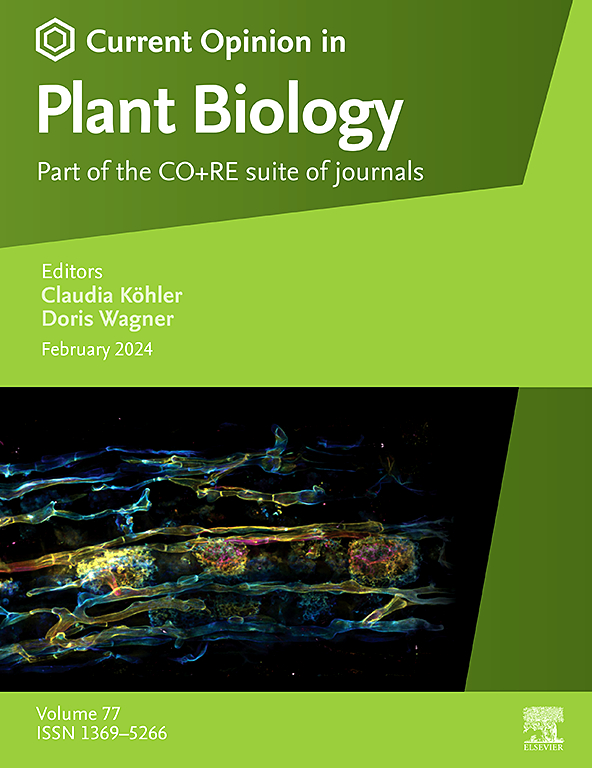植物核糖体病:植物核糖体蛋白基因突变的新见解和关键的重新评估
IF 7.5
2区 生物学
Q1 PLANT SCIENCES
引用次数: 0
摘要
核糖体是将遗传信息转化为功能性蛋白质的基本细胞机器。核糖体需要大量的营养投入,占叶片中有机磷的50%和有机氮的25%。因此,优化核糖体水平可以减少作物对肥料的需求,这是农业可持续发展的迫切目标。然而,核糖体生物发生的中断经常导致令人惊讶的发育缺陷,植物遗传学家对如何解释由缺陷核糖体引起的突变表型存在大量的困惑和争论。在这里,我们建议采用“核糖体病”的概念框架,即由核糖体生物发生缺陷引起的人类疾病,以更好地理解为什么一些植物发育过程对核糖体水平比其他过程更敏感。我们认为,将植物核糖体病理解为一类影响核糖体稳态的广泛突变,而不是一系列影响特化、异质核糖体的不同病例,将鼓励对特定核糖体敏感发育过程的有效机制研究,这些过程可以设计为规避限制核糖体可用性的有害影响。本文章由计算机程序翻译,如有差异,请以英文原文为准。

Plant ribosomopathies: New insights and a critical re-evaluation of ribosomal protein gene mutants in plants
Ribosomes are essential cellular machines that translate genetic information into functional proteins. Ribosomes require massive nutrient investments, accounting for as much as 50 % of organic phosphorus and 25 % of organic nitrogen in leaves. Optimizing ribosome levels could therefore reduce crop plant fertilizer requirements, an urgent goal for agricultural sustainability. Disruptions to ribosome biogenesis often cause surprising developmental defects, however, and there is substantial confusion and debate among plant geneticists about how to interpret mutant phenotypes caused by defective ribosomes. Here, we propose to adopt the conceptual framework of “ribosomopathies”, human disorders caused by defects in ribosome biogenesis, to better appreciate why some plant developmental processes are more sensitive to ribosome levels than others. We argue that understanding plant ribosomopathies as a broad class of mutants that affect ribosome homeostasis, rather than a series of distinct cases impacting specialized, heterogeneous ribosomes, will encourage productive mechanistic studies of specific ribosome-sensitive developmental processes that could be engineered to circumvent the deleterious effects of restricting ribosome availability.
求助全文
通过发布文献求助,成功后即可免费获取论文全文。
去求助
来源期刊

Current opinion in plant biology
生物-植物科学
CiteScore
16.30
自引率
3.20%
发文量
131
审稿时长
6-12 weeks
期刊介绍:
Current Opinion in Plant Biology builds on Elsevier's reputation for excellence in scientific publishing and long-standing commitment to communicating high quality reproducible research. It is part of the Current Opinion and Research (CO+RE) suite of journals. All CO+RE journals leverage the Current Opinion legacy - of editorial excellence, high-impact, and global reach - to ensure they are a widely read resource that is integral to scientists' workflow.
 求助内容:
求助内容: 应助结果提醒方式:
应助结果提醒方式:


